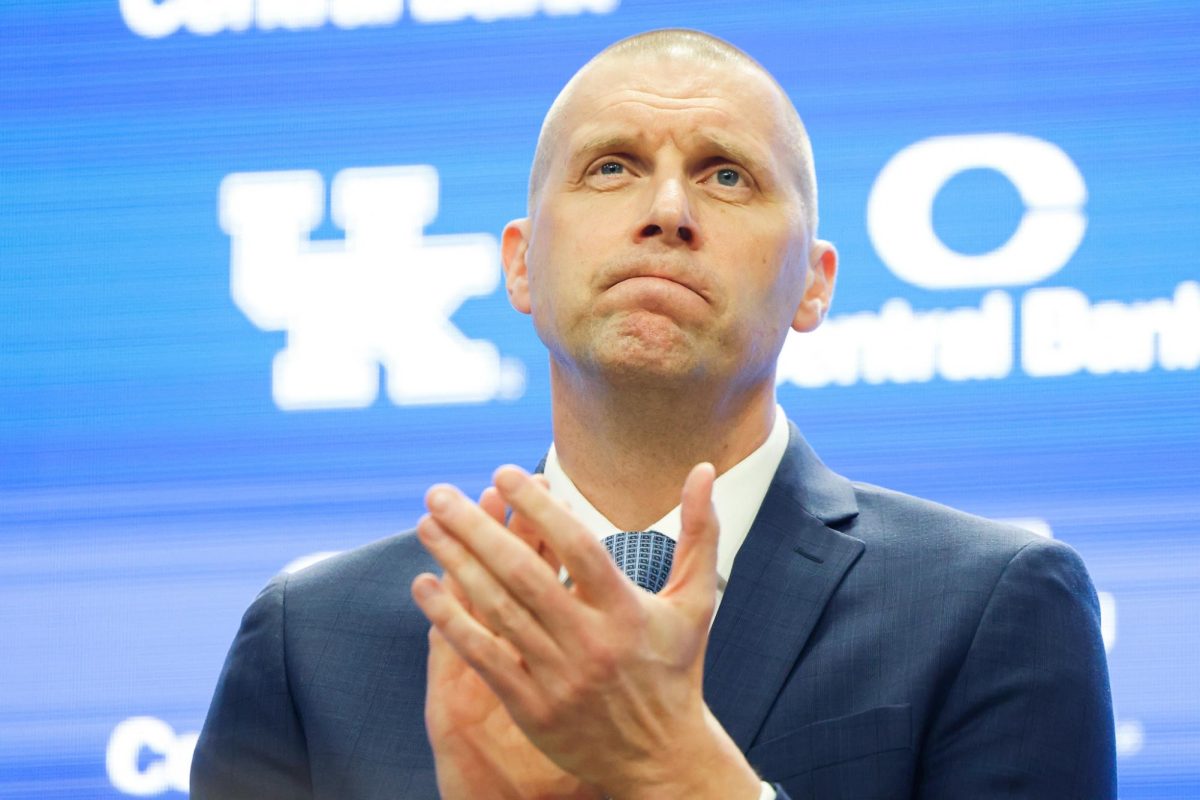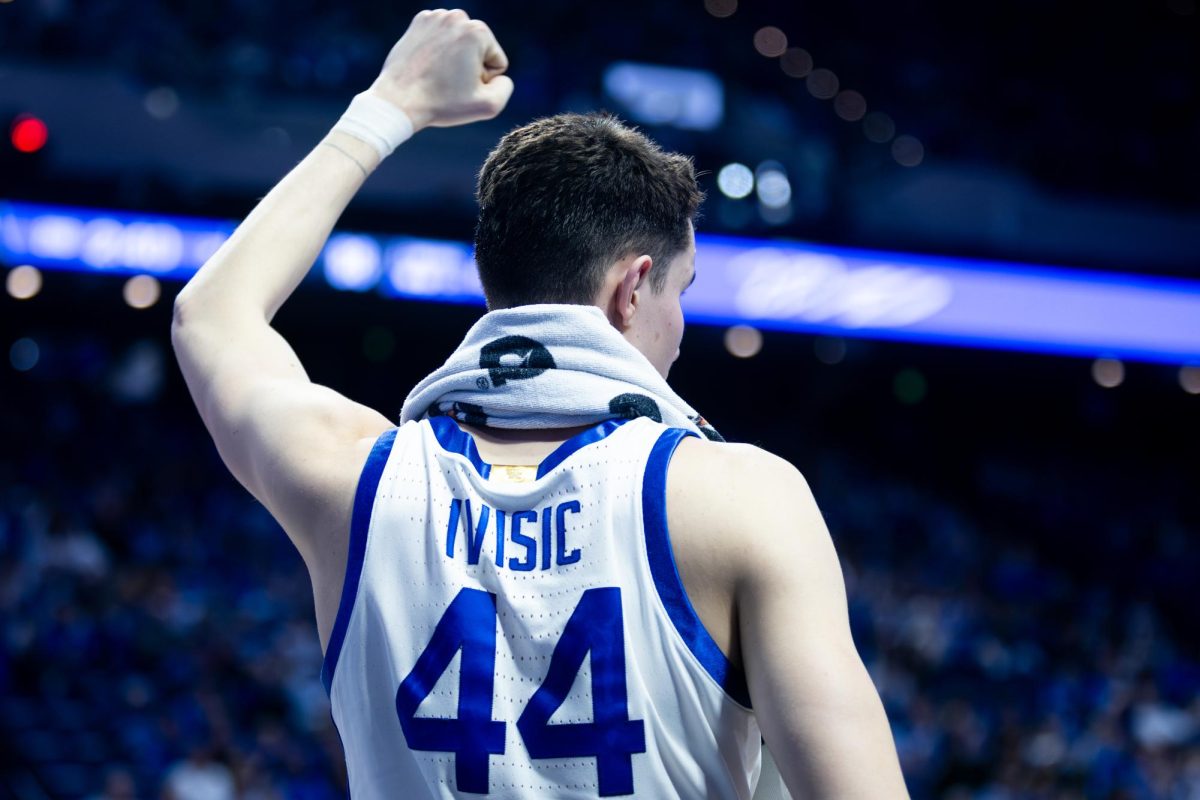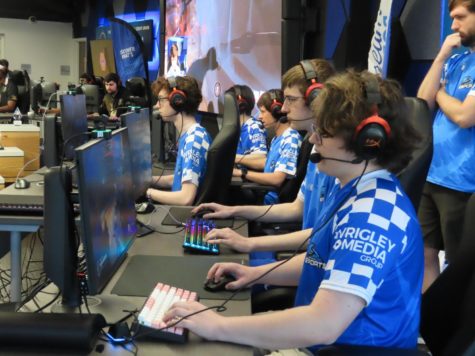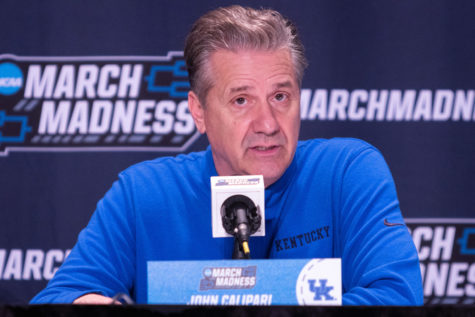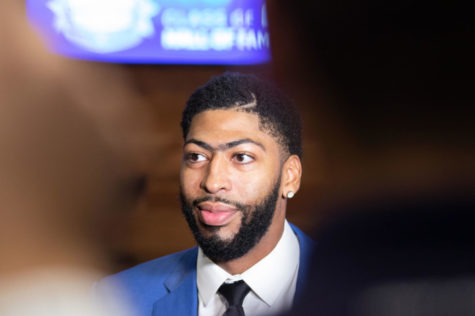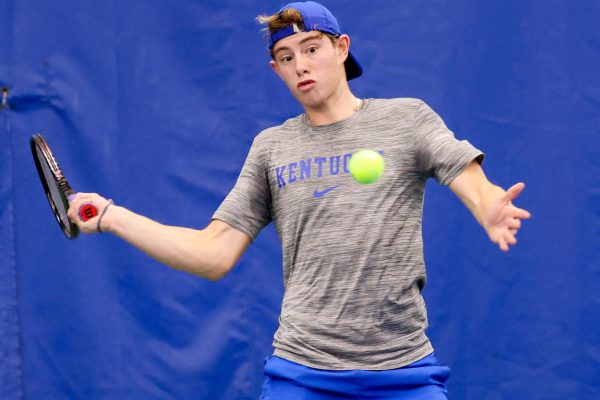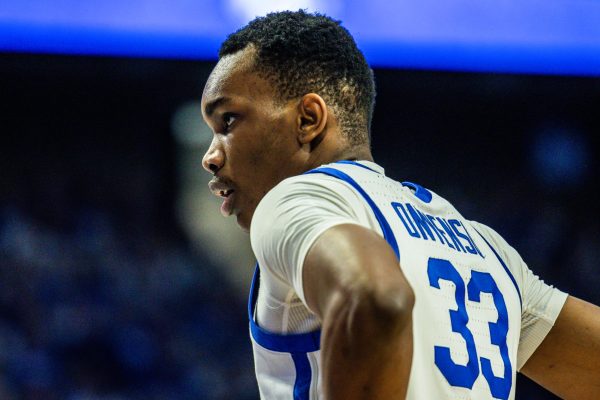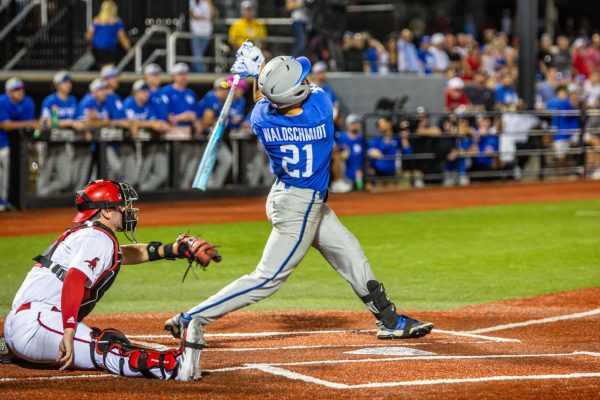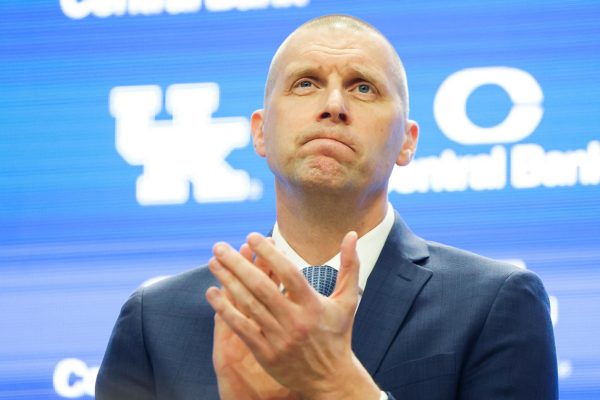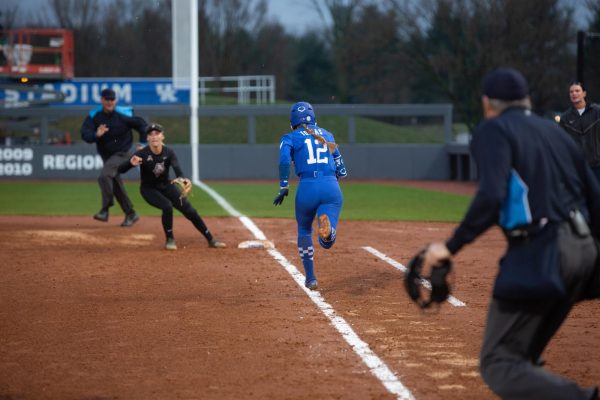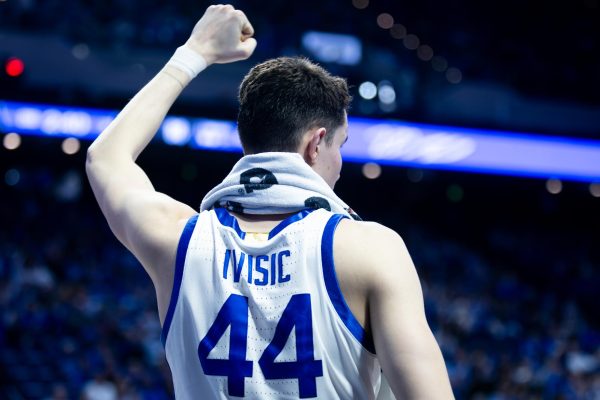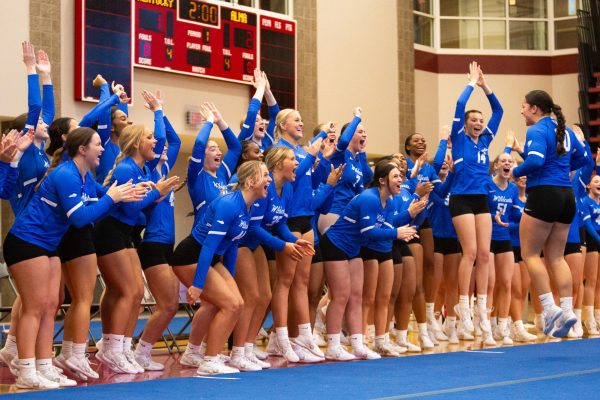Touring past ‘Midnight’
February 25, 2008
Linkin Park’s new album, “Minutes to Midnight,†is a reference to the Doomsday Clock that was created by researchers from the Bulletin of the Atomic Scientists at the University of Chicago in 1947. The purpose of the clock was to portray how close — in imaginary “minutes†— the world is to nuclear destruction — “midnight.â€
The clock’s hands have been adjusted over the decades, from 11:53 p.m. at the beginning of the Cold War in 1947 to the current 11:55 p.m. — five minutes to midnight. Linkin Park vocalist Mike Shinoda said in reference to the album title, “Don’t take that at face value. There are layers of meaning; most metaphoric. It’s a reference to the Doomsday Clock, the Apocalypse, a metaphor for death and rebirth — but it could also be applied to the music industry, sort of tongue-in-cheek.â€
“Minutes to Midnight†is Linkin Park’s first release since a public dispute with their record label, Warner Bros. Records. The album debuted at No. 1 on the Billboard Top 200 and sold more than 620,000 copies in its first week.
On Friday, Jan. 11, Linkin Park vocalists Shinoda and Chester Bennington held a Q&A conference call to answer questions about “Minutes to Midnight†and the band’s U.S. tour, which continues tonight at 7 in Rupp Arena. Tickets range from $36.50 to $46.50. For more information about tickets, visit the Ticketmaster Web site (www.ticketmaster.com) or call 233-3535.
Q: You guys have talked about wanting to be a band that can’t be so easily categorized, one that you can’t pigeonhole. How do you think “Minutes to Midnight†has helped you get a little closer to that goal of not being able to be so easily categorized?
Chester: From my point of view, I think the most important part of that process in my eyes was really the fact that we kind of opened our minds up to writing music that just felt right. We went more towards how the songs themselves made us feel, and how we responded to them rather than what we thought we should create, we thought our fans would want us to make.
We wrote a lot of different styles of songs, and we worked on a lot of songs that maybe were a little off the task for us. Songs like “In Between and In Pieces,†and “Little Things Give You Away,†songs that probably we would have thought were cool, but we weren’t sure if we could pull them off, I think it opened up that door for us.
We write music that we want to hear, and if that means putting a jungle beat with a saxophone is what we want to hear, then we’re going to write that. Whether that makes a record or not doesn’t matter, but that’s what we’re going to write.
Mike: I think the big challenge or the big question that was posed at the beginning of the “Minutes to Midnight†studio sessions was, “Are we going to change? Are we going to change the sound so much that people are going to think we’ve gone off the deep end, it’s weird, it’s too different, and they’re not going to like it?â€
If you look back to the day before we turned it in, the day we finished it, we were pretty nervous because who knows if the fans had grown up in the same direction that we had. We went underground and worked on this record, and we popped up somewhere that was different from where everybody else ended up. Luckily, I guess, that was not the case.
Q: How was working with other artists, such as DJ Lethal or Jay-Z, Depeche Mode, things like that — collaborations? How did that aid you guys in your creative process in making “Minutes to Midnight?â€
Chester: For us, we have a lot of influences, and there are a lot of bands that we admire. There are a lot of artists that we feel are really cool. We’ve had a chance to work with a lot of artists in our pretty short time that we’ve been around.
I think it’s important, especially when you work with guys like Jay-Z. I think musically it was like, okay, this is awesome. But then you get to see how a different creative person works, and when you see someone like Jay-Z, for example, who has this really unearthly kind of talent that defies logic, it doesn’t make any sense. It’s fun to watch that kind of stuff, and it’s inspiring to see someone go, roll a beat, and come up with lyrics off the top of their head for five minutes that make sense, that are cohesive, that are enlightening or just really funny all at the same time.
Mike: Each time I get in the studio with somebody, they’ve got a different MO. They’ve got a different style and different little tricks and techniques and maybe equipment, gear that they use that I haven’t tried out before. All that stuff keeps it really fresh. At this point in the game, for us, having been a band and been playing and writing music together for 10 years, a large part of the puzzle for us at this point is finding ways to make it new and interesting.
Q: You guys spent so much time on the road, and people have so many opportunities to see you. How is this tour going to differ? How do you keep it different and keep it exciting for the fans?
Mike: We actually put a lot of attention on our live show this time around, ever since we kind of came out — ever since we came out of the studio, we were really excited about different ways we could keep the show fresh. Having so many songs now, we’re definitely no longer in the position that we used to be in with “Hybrid Theory†where we had virtually 40 minutes of material, and we were asked to play headline sets, and we didn’t even have enough songs to fill one out.
Now we’ve got all these songs, and we can kind of pick and choose and fans want to hear different things at different times. It’s a pleasure to be able to get on stage and switch up the set every night. Not only that, but for the U.S. tour, and this kind of goes out to the people that have come and seen us play on Projekt Revolution, the production will be different. The set will look different.
As you may have heard from some of the — how the ticket sales are going, a number of shows are being sold to 360 degrees. That means that the stage is obviously set up for a 360-degree show
Chester: Yes. What’s great about that is the fact that one of the bonuses is that people will actually get to see what (Linkin Park DJ) Joe Hahn is wearing on stage.

















































